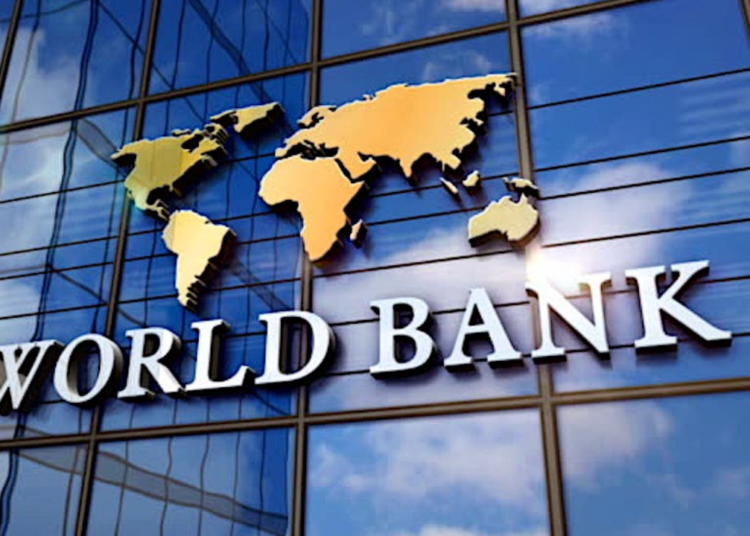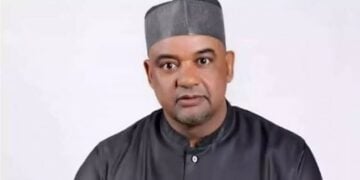The World Bank has said rising instability, weak growth in Nigeria and the rest of West Africa, and lingering uncertainty in the global economy are dragging down growth prospects in Africa’s largest economy and the entire region.
Economies in the Sub-Saharan Africa (SSA) region face many challenges, including a “lost decade” of sluggish growth, persistently low per capita income, mounting fiscal pressures exacerbated by high debt burdens, and an urgent need to create jobs, it said.
According to the bank, tackling these multifaceted issues requires comprehensive reforms to promote economic prosperity, reduce poverty, and create sustainable employment opportunities for the teeming youths.
The World Bank in its Africa’s Pulse report said that Sub-Saharan Africa’s economic outlook remains bleak amid an elusive growth recovery. It warned that Nigeria and the entire region could lose a “lost decade” if it fails to urgently achieve stability, increase growth, and create jobs for its largely young population.
Nigeria’s economy is projected to grow at 2.9 per cent in 2023 due to lower international prices and currency pressures affecting oil and non-oil activity, according to the World Bank.
Economic growth in Sub-Saharan Africa is forecast to decelerate to 2.5 per cent in 2023, from 3.6 per cent in 2022.
Meanwhile, the report identified a set of policies to overcome hurdles and unleash job creation in the region. First, it called for cost-effective private sector reforms, focused on increasing competition, uniform policy enforcement across firm sizes, and regulatory alignment with regional trading partners. In that same regard, the World Bank said governments can also help identify and support early-stage growth of businesses through more inclusive procurement practices and promotion of local businesses abroad.
Also, the report said investment in education is necessary to boost semi-skilled occupations in the region. “Interventions that improve learning in school are more effective than those increasing school attendance alone, while vocational education can be useful for addressing the underemployed and those who have missed out on education as children.
“Education of girls and access to jobs for women can reduce potential productivity loss from the misallocation of female labour. Cash transfers have proven effective in increasing girls’ school enrollment and attendance, as well as in curbing pregnancies among school-age girls,” the stated
Angola’s economy is expected to decelerate to 1.3 per cent in 2023. Increased conflict and violence in the region weigh on economic activity, and this rising fragility may be exacerbated by climatic shocks.
According to the pulse report that was released on Wednesday, South Africa’s GDP is expected to only grow by 0.5 per cent in 2023 as energy and transportation bottlenecks continue to bite.
In Sudan, economic activity is expected to contract by 12 per cent because of the internal conflict which is halting production, destroying human capital, and crippling state capacity.
In per capita terms, growth in Sub-Saharan Africa has not increased since 2015. The region is projected to contract at an annual average rate per capita of 0.1 per cent over 2015-2025, thus potentially marking a lost decade of growth in the aftermath of the 2014-15 plunge in commodity prices.
“The region’s poorest and most vulnerable people continue to bear the economic brunt of this slowdown, as weak growth translates into slow poverty reduction and poor job growth,” said Andrew Dabalen, World Bank Chief Economist for Africa. “With up to 12 million young Africans entering the labour market across the region each year, it has never been more urgent for policymakers to transform their economies and deliver growth to people through better jobs.”
Despite the gloomy outlook, there are a few bright spots. Inflation is expected to decline from 9.3 per cent in 2022 to 7.3 per cent in 2023 and fiscal balances are improving in African countries that are pursuing prudent and coordinated macroeconomic policies.
In 2023, the Eastern African Community (EAC) is expected to grow by 4.9 per cent while the West African Economic and Monetary Union (WAEMU) is set to grow by 5.1 per cent. However, debt distress remains widespread with 21 countries at high risk of external debt distress or in debt distress as of June 2023.
Overall, current growth rates in the region are inadequate to create enough high-quality jobs to meet increases in the working-age population. Current growth patterns generate only 3 million formal jobs annually, thus leaving many young people underemployed and engaged in casual, piecemeal, and unstable work that does not make full use of their skills. Creating job opportunities for the youth will drive inclusive growth and turn the continent’s demographic wealth into an economic dividend.
“The urgency of the jobs challenge in Sub-Saharan Africa is underscored by the huge opportunity from demographic transitions that we have seen in other regions,” said Nicholas Woolley, World Bank Economist and contributor to the report. “This will require an ecosystem that facilitates private-sector development and firm growth, as well as skill development that matches business demand.”
The development of labour-intensive manufacturing seems to be missing in Africa, limiting further effects for indirect job creation in support services and international trade. This may be partly due to a lack of capital, which continues to hamper the structural transformation required for good-quality jobs.
While the region contributes 12 per cent of the global working-age population, Sub-Saharan Africa owns only 2 per cent of the global capital stock. This means people have fewer assets with which to be productive in Sub-Saharan Africa, compared to other regions.





